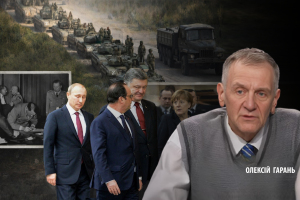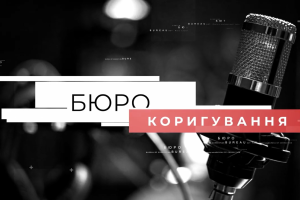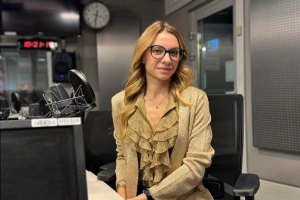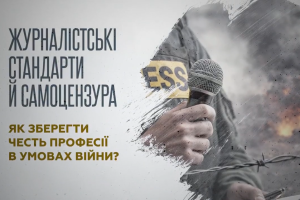Who is Iryna Bekeshkina?
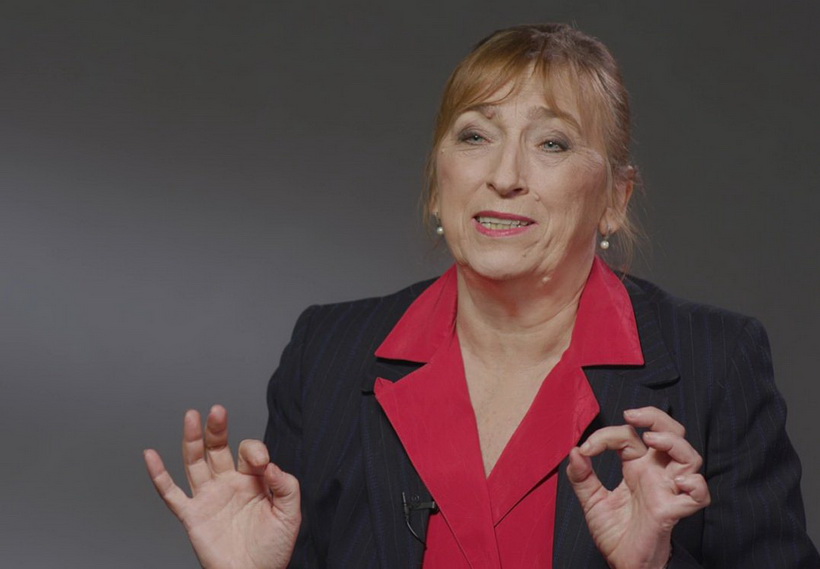
She calls herself a pathological optimist and believes that while we’re alive, nothing is ultimately settled. All her thoughts and even assumptions are backed up by research findings and accurate figures. Read about the chief sociologist of Ukraine Iryna Bekeshkina‘s principles, an ideal candidate for Ukrainians, language and the third Maidan in the column “Who is…” on Opinion.
On optimism and motto
In an interview, Iryna Bekeshkina was figuratively asked: what character trait a nurse should have, who tells the average patients’ temperature in a ward each morning. It is obvious that journalists have hinted at Bekeshkina herself, who has been considered one of the country’s top sociologists for many years. However, Mrs. Irina was not lost, and the answer was equally metaphorical.
“In developing your image, I will say that I am a nurse who has pathological optimism. Whatever happens to me, to another person, to a ward as a whole, I am always sure that something can be done about it. The main thing is to determine correctly what exactly. I can have several plans in my head. For example, when I rummage through the chaos of my bag and can’t find the keys, my mind automatically has a plan for what I will do if I can’t find them.
However, the keys have always been there yet. I do not know where this optimism comes from. Maybe it’s because a lot of things, in the end, have worked out. Nothing is ultimately settled as long as we are alive. This is my motto.”
On Zelensky’s victory
The director of the Democratic Initiatives Foundation is convinced that the high support of Volodymyr Zelensky in this year’s presidential election does not in any way testify to the unity of the country.
“When we looked at the composition of Zelensky voters at least after the first round, they split. They split the way the country splits. It is, in fact, an illusion of union which is a consequence of uncertainty. Everyone invests their dreams and wishes in Zelensky.
Therefore, I would not say that this union is stable and reliable. I want to stress that the country united on the mindset of “we cannot live like this anymore”. This desire is a verdict on the political system, the political elite. It’s a denial of the present situation that united the people.”
On Ukrainians’ distrust in government
The expert is convinced that state institutions in Ukraine have no trust, whether it’s the President, the Verkhovna Rada, or the courts. Although the Head of State could be trusted for a certain period of time, according to Bekeshkina, Ukrainians have never trusted the Verkhovna Rada.
“The situation with trust in the president is pretty interesting. Looking at the charts, the trust line goes up sharply immediately after the election, and then, usually within a year, goes sharply down and further declines. Immediately after the election, Yushchenko had incredible public confidence which was over 50%. Then the line sharply goes down. The next President, Yanukovych, was also trusted, but then the curve declined again, and so on.
The situation with the Verkhovna Rada is more complicated, they have never been trusted. A story with the National Police proves that change is possible. Immediately after its formation, people’s confidence went up sharply. Then it went down again. Although bribery has sharply decreased, the order on the roads has not been brought.”
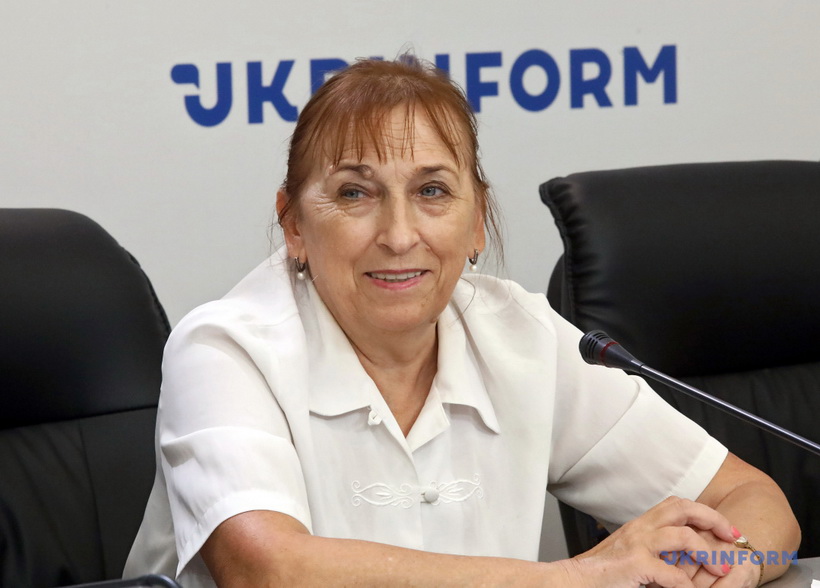
Photo by Ukrinform
On the difference between Ukrainians and Russians
Distrust of the authorities Bekeshkin calls just one of those factors that differentiate us from the inhabitants of the Russian Federation. In her opinion, Russians are more inclined to the monarchy, while Ukrainians are more inclined to anarchy.
“The reason is that for a long time Ukraine did not have its statehood, the power that it considered its own. It was always alien – the Russian Empire, the USSR, collectivization, the famine. Like, the power is there, and Ukraine is to obey. And Ukrainians never gave it the sacredness that, say, was in Russia. It is not from God. That is why we never keep any confidence in the authorities for a long time.”
On the ideal candidate that everyone would vote for
Such a candidate is … Our Lord who will come down to earth, there would be no other perfect candidate. After all, it must be a person who will not only promise but also guarantee their deeds. Someone who can make everyone happy, offer decent pensions and salaries. And of course, it’s not possible.
“It is almost impossible for us to have a majority vote for someone. At one time, the majority voted for Kravchuk. He came to power in one round since the people believed he would be able to ensure both independence and stability at the same time. Poroshenko also became president in one round since the war broke out, and he promised to bring peace.”
Nonetheless, pre-election polls have shown that the portrait of a desirable candidate (whether presidential or deputy) looks roughly the same: an honest person who will fulfill the wishes of the people and defend their interests. Professionalism is out of priority, the main point is “they have to be a good person”.
.jpg)
On the possibility of the third Maidan
What do we need to start a new revolution? Iryna Bekeshkina identifies three factors: outburst / general outrage, trusted leaders, and awareness of the outcome. However, she does not see the conditions for the new Maidan yet.
“First, there should be an outburst or general outrage that will engulf the country. In the case of 2005, it was election fraud. People saw with their own eyes how unfair the election campaign was. They realized that if such methods were to win an undeserved victory, it would be Putin #2 and that there would never be a fair election.
Second, we need leaders we trust. We remember how cars drove down the street horning and chanting “Yushchenko! Yushchenko!”. He was the absolute leader-hero.
And third, people need to understand what will happen. In 2004, people demanded fair elections, and in fact, to make Yushchenko the president. In 2013, Yanukovych’s resignation was a major requirement.
So far I do not see such prerequisites for Maidan #3. If there is a new Maidan, it will no longer be as carnival-like as the Orange one, and as forced and restrained as Euromaidan.”
On the Ukrainian language
Mrs. Bekeshkina is convinced that the language issue is also one of those that are resolved over time.
“First of all, all Ukrainian students take IIE exams. They already know Ukrainian. For them, it is not a major problem if they do not understand something.
Secondly, it is common to develop mass Ukrainian culture. The musical one was very successful, with quotas and even without ones. It turned out that we have great bands.
Now, there are Ukrainian TV shows running on TV. But why are Ukrainian detectives running in Russian? We need our Ukrainian Dontsova, who would write detectives that people read on the subway and on the beach, in Ukrainian“.
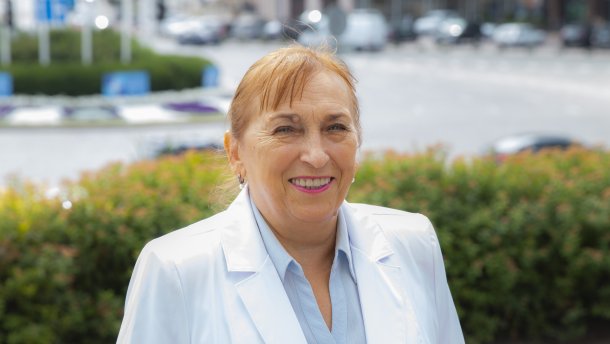
On Crimea and Donbas
Mrs. Bekeshkina assures that Crimea and Donbas have always differed from the rest of our country. For example, both regions preferred eastward integration.
“If you look at the polls of previous years, then, even then, the difference between the Donbas and, for example, Dnipropetrovsk and Zaporizhzhya regions was evident. In many respects, it was closer to the Crimea. And when sociologists associated Donbas to the east, to the Dnipropetrovsk and Zaporizhzhya regions, and the Crimea to the south, to Odesa and Kherson, these differences were largely blurred.
Both the Crimea and the Donbas clearly preferred integration in the eastern direction, as opposed to those in the Dnipropetrovsk and Kharkiv regions, where at least a third of the population was heading west.
This is explained by the fact that the Crimea is the only territory of Ukraine dominated by ethnic Russian population who settled instead of deported Crimean Tatars. And the Donbas is an “international region”, formed during the Soviet industrialization, moreover, with a small percentage of the rural indigenous population.”
Text by Dmytro Zhuravel
The material was collected from numerous interviews, speeches, presentations, and messages of Iryna Bekeshkina.
Source: Opinion





